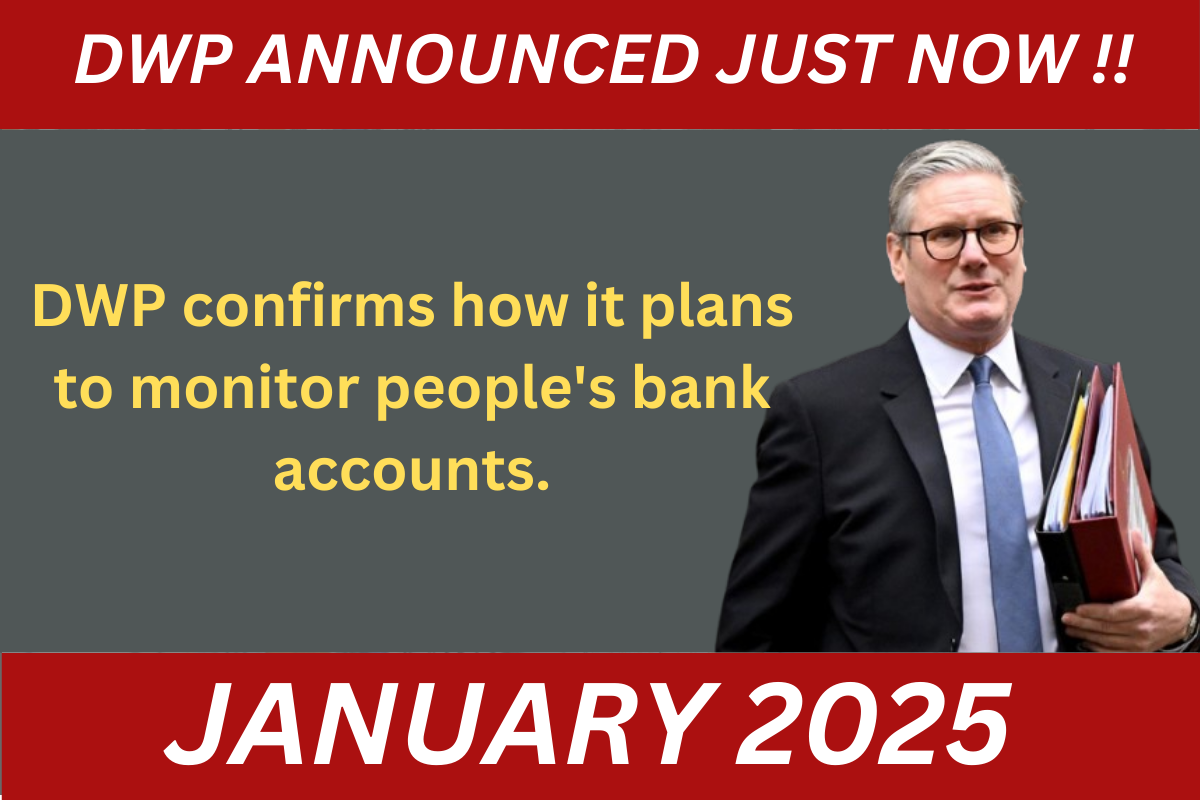In a world where financial oversight is becoming increasingly critical, the Department for Work and Pensions (DWP) has made headlines by confirming plans to monitor people’s bank accounts. But what does this mean for you and the broader public? Allow me to unpack this, breaking down the complexities of the situation into digestible bits, so you’re well-informed and empowered to navigate these changes.
What is the DWP’s Plan?
The DWP’s strategy includes meticulous monitoring of individuals’ bank accounts, primarily aimed at identifying fraudulent claims or overpayments. This initiative is part of a grander scheme to tighten the reins on welfare and social support, ensuring that resources are effectively utilized. But before you panic, let’s take a closer look at how this monitoring will unfold.
The Mechanism Behind the Monitoring
You might wonder: how exactly does the DWP plan to conduct this monitoring? Well, the DWP aims to utilize advanced data analytics alongside traditional investigative methods. By analyzing bank transactions, they can recognize patterns indicative of fraudulent activity. Imagine it as a digital detective combing through heaps of financial data, searching for inconsistencies that raise red flags.
Privacy Concerns
Naturally, such news brings up an important conversation about privacy. Many people are understandably anxious about the idea of government scrutiny over personal finances. It’s like having someone peering over your shoulder while you maintain your bank records, right? The DWP assures the public that protocols will be in place to protect sensitive information, but the question remains—how much transparency will they provide?
Who Will Be Affected?
You might be asking yourself if this monitoring affects you directly. Generally speaking, it focuses on claimants receiving benefits like Universal Credit or Housing Benefit. However, all citizens should keep a watchful eye, as changes in policy can ripple throughout the welfare system, impacting various demographics down the line.
Implications for Benefits Claimants
For those receiving benefits, the looming question is how this will impact their daily lives. With the DWP keen on ensuring funds are used correctly, claimants might face increased scrutiny if suspicious activities arise. It’s critical for individuals to keep accurate records and be transparent in their dealings, as the stakes are higher than before.
The Bottom Line: Is This A Good Idea?
This monitoring strategy could foster greater accountability, as it aims to root out fraud and misuse. However, we must weigh the benefits against the potential for overreach and invasiveness. Striking the right balance between oversight and privacy is crucial. After all, who wants to feel like someone’s always watching their financial moves?
Engaging with the Community
Encouraging dialogue between the DWP and the communities it serves can pave the way for improved understanding and trust. Forum discussions, Q&A sessions, and feedback channels could amplify the voices of those affected, ensuring that the policies serve the public interest and don’t alienate citizens.
Conclusion
In conclusion, the DWP’s announcement about monitoring people’s bank accounts reflects a significant shift in the approach to public welfare. As we move forward, staying informed and engaged will be key to navigating this evolving landscape. Will this lead to better accountability, or are we stepping into a realm of increased scrutiny? Only time will tell, but being aware of these changes is essential.
FAQs
1. How will the DWP monitor my bank account?
The DWP plans to use data analytics to review bank transactions, focusing on identifying fraudulent claims and overpayments.
2. Will my privacy be protected during this monitoring?
The DWP assures the public that safeguards will be implemented to protect personal information, but public concern remains about transparency.
3. Who is primarily affected by this monitoring?
Mainly individuals receiving benefits such as Universal Credit or Housing Benefit will be monitored.
4. What happens if suspicious activity is detected?
If suspicious activity arises, it may lead to further investigation and possibly impact an individual’s benefits.
5. How can I engage with the DWP about my concerns?
You can participate in community forums, provide feedback through official DWP channels, and engage in discussions to voice your concerns and insights.
